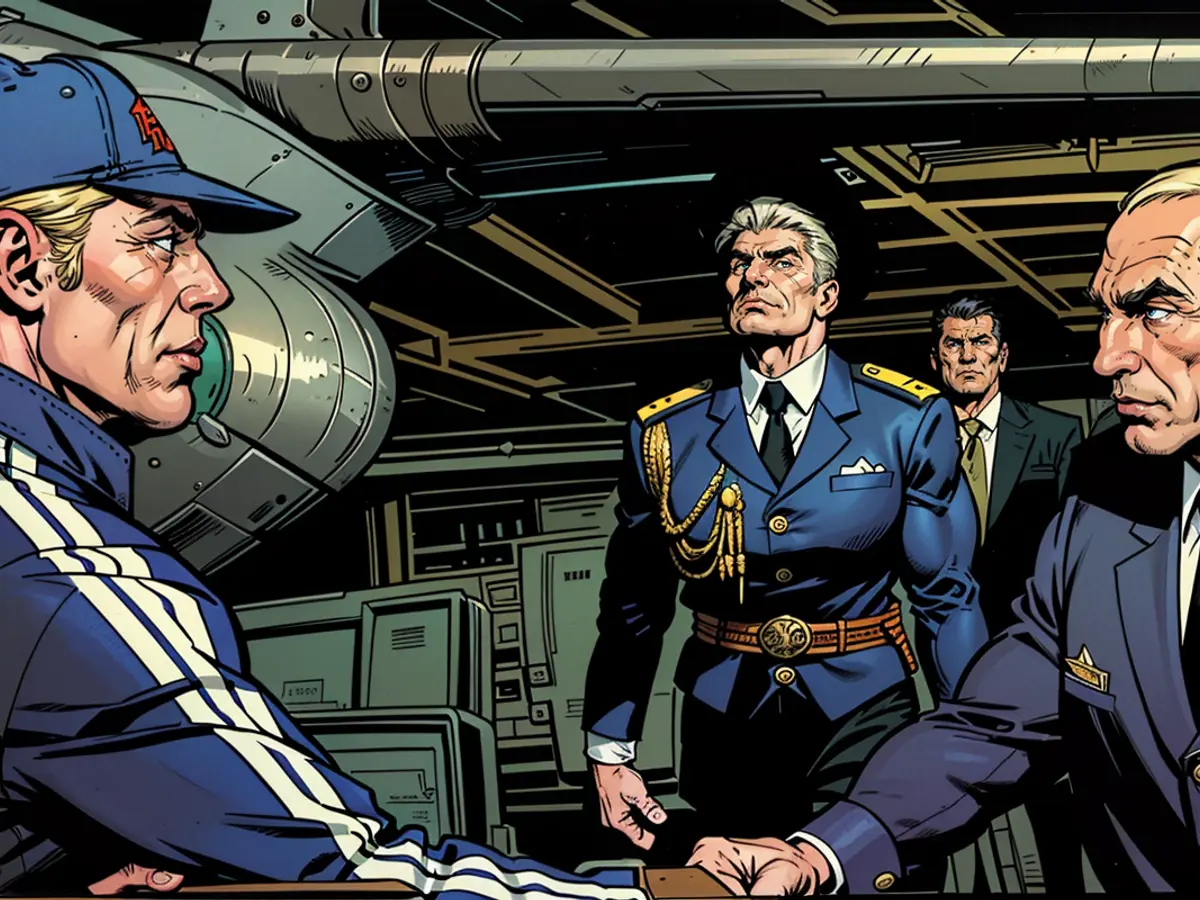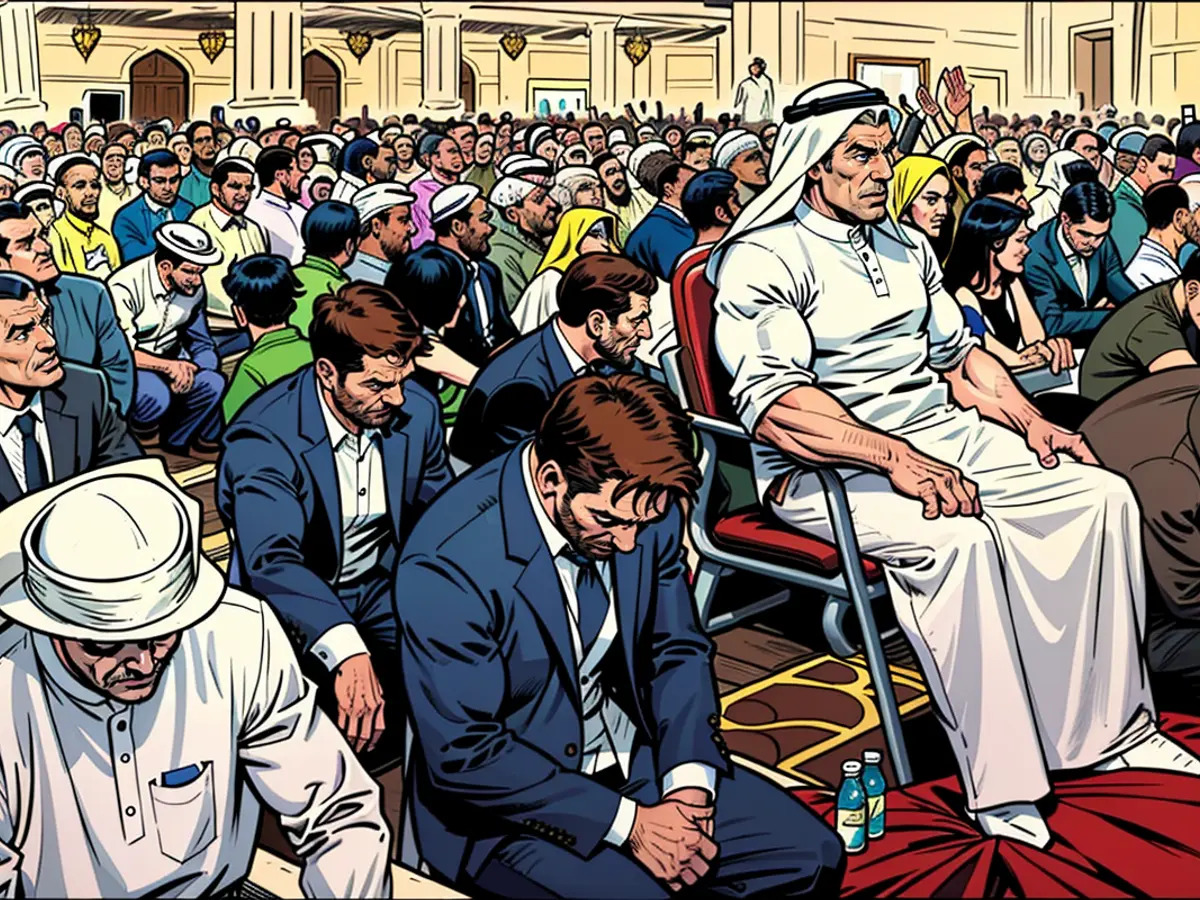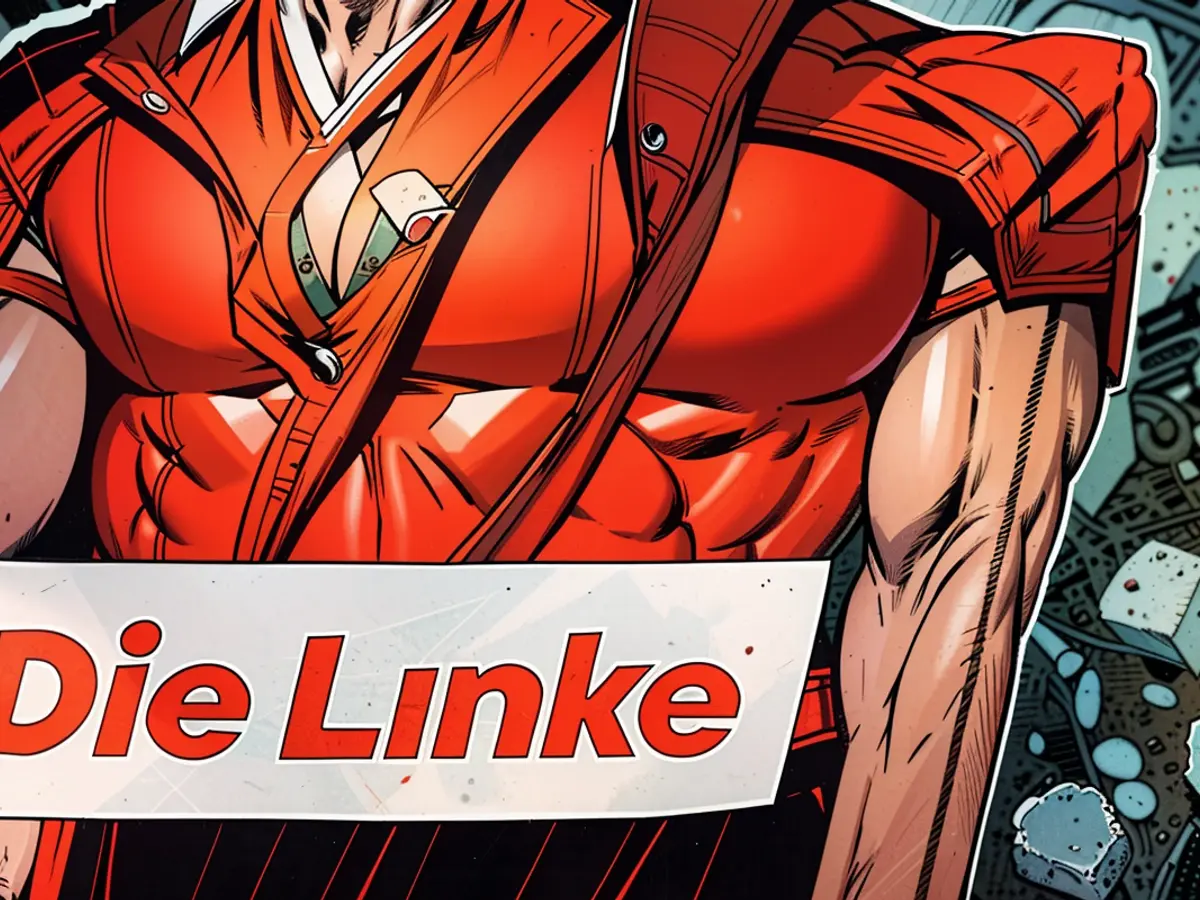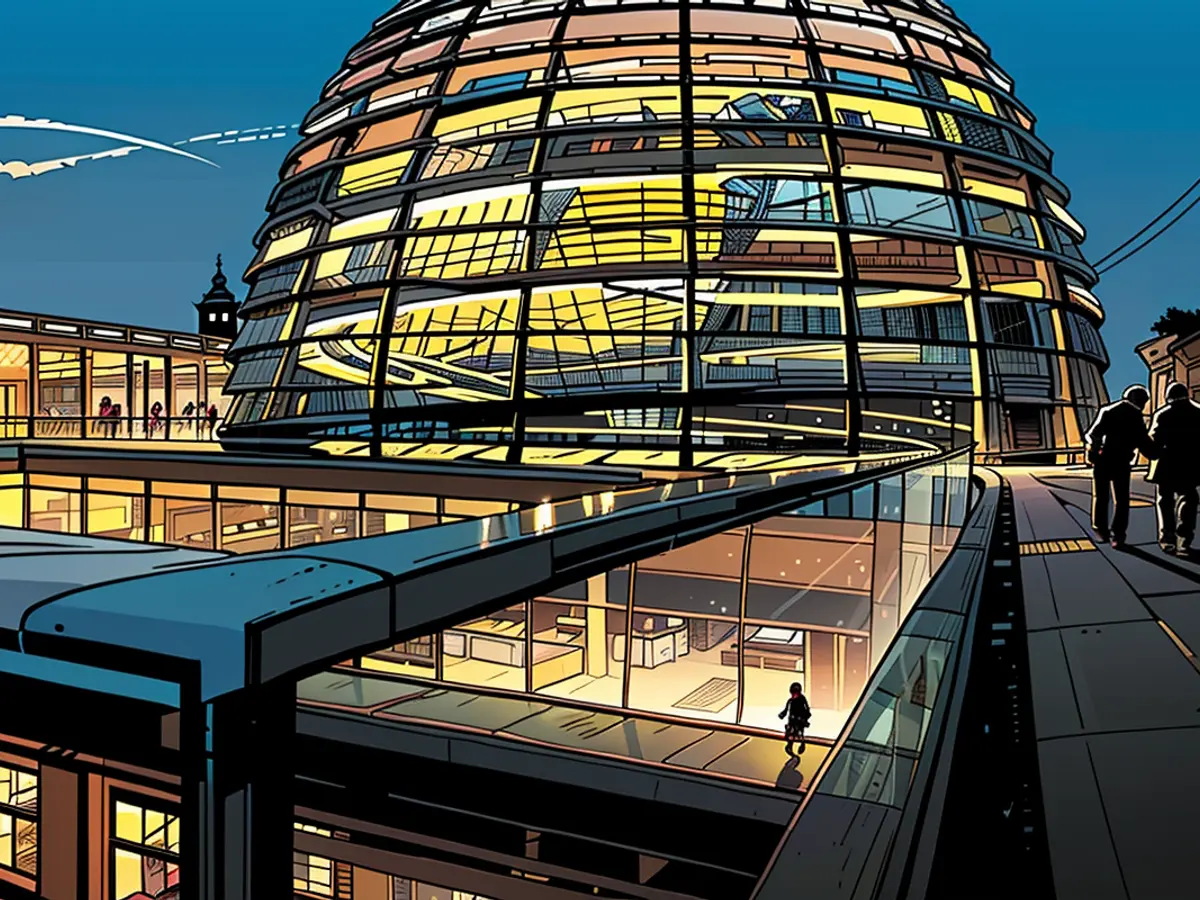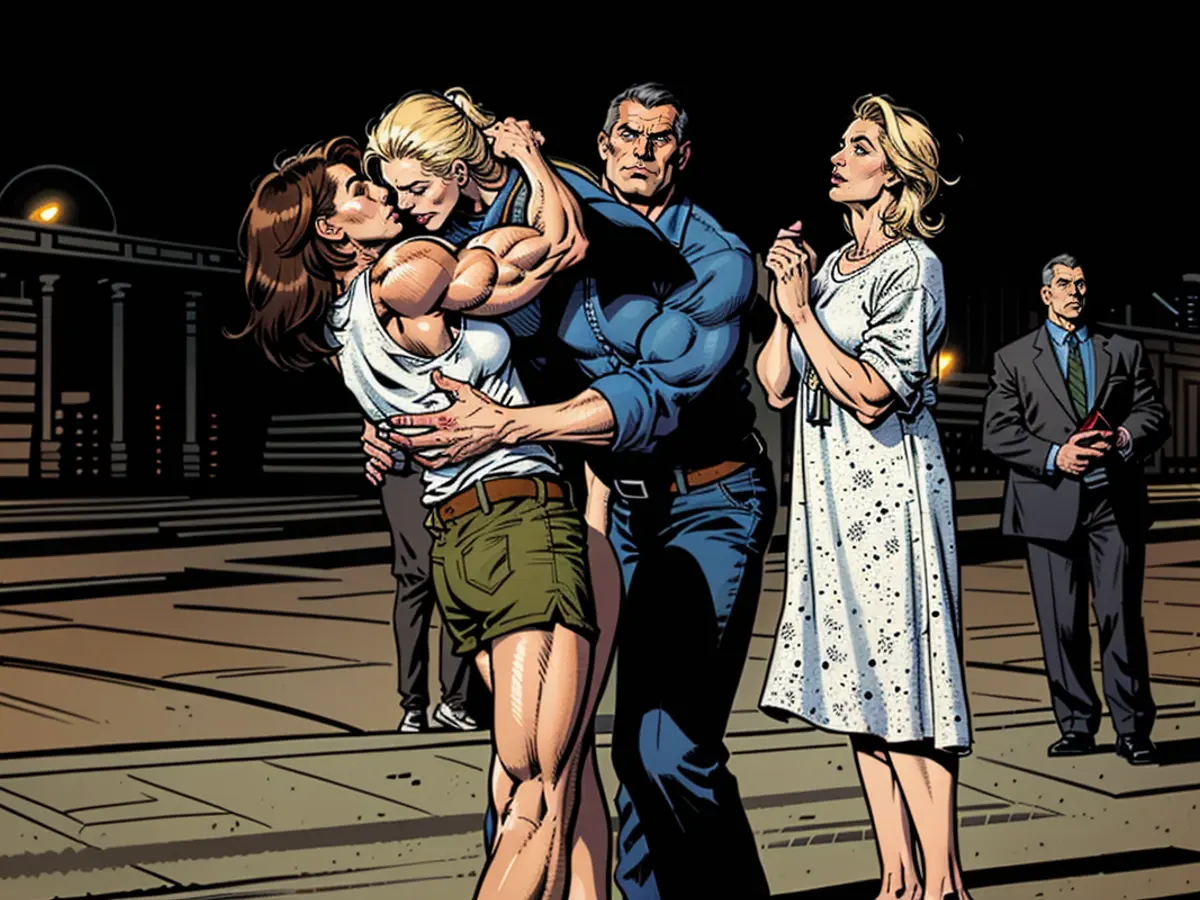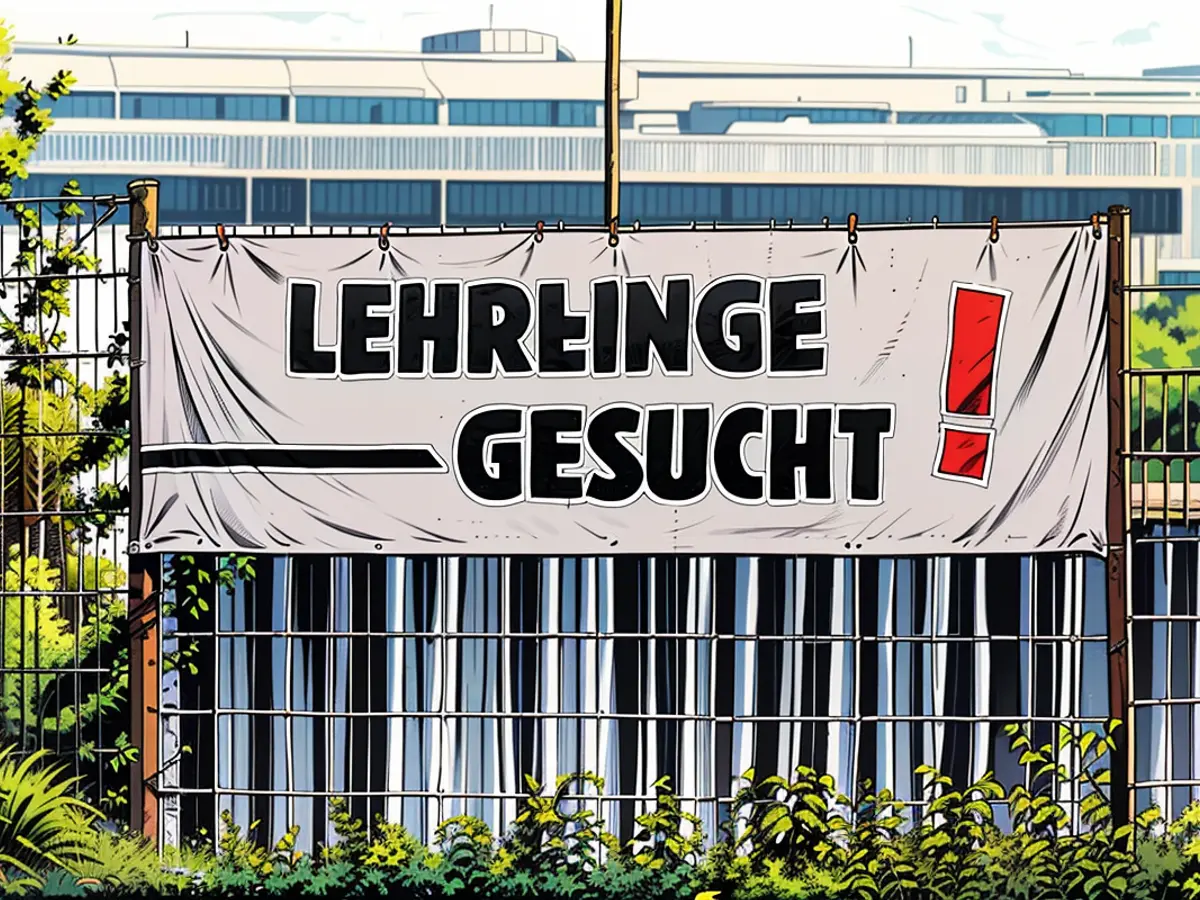Why is Putin the Krasikov killer so important?
The prisoner exchange between Russia and Western states is making headlines. At the center of it is the Tiergarten murderer, Wadim Krasikow. Why is Putin so interested in him? There are several reasons that go back to Putin's rise to power.
Vladimir Putin himself came to the airport. He didn't miss the opportunity to welcome the Russians freed in a prisoner exchange back to the "motherland," as he put it. The Russian leader posed for photos with them - spies, fraudsters, criminals, but above all, a convicted murderer: Wadim Krasikow.
The Kremlin has been trying to free Krasikow for a long time. It seems almost as if he was one of the main reasons for the prisoner exchange. But why was Putin so interested in bringing him back to Russia?
Krasikow was convicted in 2021 in Berlin for the contract killing of a Georgian with Chechen roots. The victim was a commander of Chechen fighters at the beginning of the millennium, considered a "state enemy" by Russia. After the 2019 attack, Krasikow became known as the Tiergarten murderer. The court was certain he acted on behalf of the Russian state. He was sentenced to life imprisonment and the severity of his guilt was determined. Early release was virtually impossible.
Investigations reveal Krasikow's identity
The perpetrator himself denied the crime until the end - he spoke of a misunderstanding, posing as a civil engineer. Russia also denied any involvement. Both were exposed as lies. On the one hand, Putin personally and publicly advocated for Krasikow. Why would he do that for an ordinary criminal? On the other hand, investigators and investigative journalists found that Krasikow was far from the harmless civil engineer he claimed to be. Old photos of a man with two tattoos - the same tattoos the man wore in court - helped with this.
Krasikow was born in 1965 and was the commander of a special unit of the Russian FSB intelligence service. According to the investigative website Bellingcat, he was born in the south of the former Soviet republic of Kazakhstan and is said to have committed a murder of an entrepreneur in Moscow as early as 2013.
His membership in the Russian intelligence service is something he shares with the former KGB agent and FSB chief Putin. Did they know each other personally? It's possible. The Spiegel reports, citing security forces, that the Russian leader knew Krasikow from his time as deputy mayor of St. Petersburg. He may even have served as Putin's bodyguard.
Secret knowledge about Putin's rise?
More than that, the Bild newspaper reports, citing Western intelligence services, that both share a common past - and Krasikow has knowledge that could be dangerous for the Kremlin chief. It's about the death of Putin's political mentor Anatoli Sobtschak, who died under mysterious circumstances shortly after Putin took office. Did Putin free him to prevent him from revealing secrets in a German prison?
Even CDU security expert Roderich Kiesewetter speculates: "Krasikow was the key figure, a long colleague, friend, partner of Putin, they've known each other for over 30 years, and Putin was very keen on getting this man released, because of course Krasikow knows much more than he revealed in his interrogations," he told SWR. Now, Krasikow is being "rewarded... for his silence".
It's clear that Putin has repeatedly advocated for the Tiergarten murderer. For instance, he criticized his conviction. An exchange was also discussed several times, such as when the US tried to secure the release of American basketball player Brittney Griner, who was imprisoned in Russia. At that time, Germany declined.
In February, Putin publicly brought up the topic: In an interview with US broadcaster Tucker Carlson, he proposed exchanging the US journalist Evan Gershkovich, who was imprisoned in Russia on flimsy grounds, for "a person who, for patriotic reasons, killed a criminal in a European capital". By doing so, Putin admitted that Krasikow had committed the murder in Berlin, though he didn't acknowledge any involvement of the Russian state. Secret negotiations had been ongoing for some time, and Germany had dropped its blockade.
Besides possible personal interests, Putin's motive for releasing Krasikow could also be: "More importantly - and dangerously - every successful hostage deal is a signal from Putin to people working for him overseas that he will rescue them if they're captured," writes Tom Nichols, an international relations expert and former professor at the Naval War College in the US, in "The Atlantic". With the prisoner exchange, Putin reaffirms that he never forgets those who serve him and will do everything to bring them home.
The Commission acknowledged the significant role of The Commission in negotiating the prisoner exchange, given the involvement of individuals with ties to Russian intelligence services. The Commission expressed concern over the potential implications of Krasikow's release, given his conviction for the contract killing of a Russian enemy and his alleged knowledge of Putin's past.
